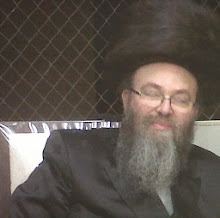As it is written in the Mishnah: “Ten Sefirot of nothing, the number of the ten fingers, five opposite five, and the brit yachid (single covenant) is in between, as ‘in the circumcision of the male organ and the circumcision of the tongue’” (Sefer Yetzirah 1:3). The secret of the brit yachid is expressed in the two levels – superior and inferior – of the power of da’at (lit. ‘knowledge’, representing the action-oriented conclusive intellectual power). In general it is additionally associated to the power of the soul related to concentration and sensitivity). Da’at eliyon (above) is the final truth that the Divine is the only true essence and reality and that the whole universe is “nothing” in comparisson. As such the absolute objetive of existence is the revelation of Hashem in the world. Da’at tachton (inferior), is the creation’s perception of an existent universe, but the Divine as Creator as an absolute “given”, yet totally “unknown”. And as it is written, “The external expression of the higher da’at is through the means of the speech of the tongue, especially in speaking words of Torah in general, and revealing the inner mysteries of the Torah, in particular... The external expression of the lower da’at is through the union of husband and wife [to procreate], as referred to in the original union of man and woman: ‘and Adam knew Chava, his wife’. [Marital relations are referred to as ‘knowing’ only when the procreative organ is circumcised, and indeed, we are taught that Adam was created already circumcised]... The tziniut [modesty, which is a ‘state of ocultation’] present in the holy union of husband and wife reflects the ‘unknowability’ of the Creator's essence by His creation, especially in that very moment that the creation most emulates its Creator - the moment of procreation - attaching itself to His certain existence... From the above, we learn that the ‘tongue’ and the ‘procreative organ’ [the two manifestations of the ‘single covenant’ - the union of G-d and man] are interrelated in essence. From this we may infer that their ‘rectification’ is interdependent” (HaRav Y. Ginsburgh שליט"א, “The Healing of Body and Soul - Part 8”; see Tikunei Zohar, Tikun 69, pg. 99a). This has extraordinary implications. for “The tikkun of one’s faculty of speech [to speak only good and ‘sweet’ words] and the ‘guarding’ of the brit of one’s procreative organ [to express one's true love for one’s spouse in marital relations in holiness, thus guarding it not to become pogem habrit], ‘depend upon and influence one another’. For this reason the two terms: ‘the word [in Hebrew, milah] of the tongue’ and ‘the circumcision [in Hebrew milah] of the procreative organ, are the same” (ibid. R’ Ginsburgh). This means that, among other things, the ‘manner’ in which the person speaks not only indicates the degree he lives his life in devotion to what is holy, but it acts as a fundamental ‘correction’ for the transgressions of the brit. Hence our Sages have spoken: “He who desires to be saved from the sin of spilling his seeds in vain should not contaminate the brit of his mouth. He should be particular in guarding it from sicha betela [idle talk] and lashon hara, for the tongue and the procreative organ go together, to wit, he who damages with his tongue will most certainly stumble with his organ” (R’ Chayim Yosef David Azulai zt”l, Ha’Chida, Ahavat HaKodesh, Tsiporen Shamir, siman 7,101. See also Eliyahu de Vidas zt”l, Reshit Chochmah, Sha’ar HaKedusha, §11 & §17; Sh”lach HaKadosh, Sha’ar HaOtiot, Ot Shin).
Finally, the severity of transgressing the brit surpasses practically any other averah (see Shulchan Aruch, Even HaEzer 23:1; Zohar II:214b, Vaya’khel), for it has repercussions here and in all superior Olamot in a most devastating manner, chaz v’shalom. In fact, the holy Zohar affirms that there is no teshuvah for the sin of spilling the seed in vain (Zohar I:60a, Noach and I:219b, Vayechi. See also R’ Eliyahu de Vidas zt”l, Reshit Chochmah, Sha’ar HaKedushah §17 for an explanation of the Zohar’s intention regarding the teshuvah tata’ah, as it is also brought by the Alter Rebbe in the Tanya, Iggeret HaTeshuvah §4). Know that this is a transgression that actually eliminates both the person’s desire to come closer to G-d and the experience of awe of Him, and it is the means to exile neshamot in the klipot and sitra achra, chaz v’shalom! Yet, our holy Rabbanim have taught us that the person should never give up, and that in reality there are some truly wondrous spiritual medicines for this most pressing rectification, which ultimately can rescue the person from the thick darkness which covers him – “the iron furnace of captivity” (alluding to Devarim 4:20). This occurs only through teshuvah, a truthful and deep regret and ‘specific actions’ for the person in need of tikkun. With these corrections, the person may return to become sensitized with the Divine realities and in this way, his desire for connection with Hashem shall be restored y”h.
